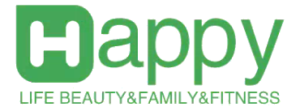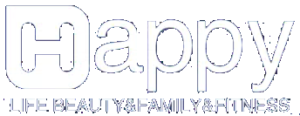
The rowing machine, also known as the rower, ergometer or erg, often sits neglected in the corner at the gym. What many people don’t realize is it’s a great way to work your entire body and get your heart rate up fast.
“We sometimes call the rowing machine the ‘Rodney Dangerfield’ of the fitness floor — it doesn’t get any respect!” says Sarah Fuhrmann, owner of UCanRow2 and author of “101 Best Rowing Workouts.”
Why? Many people simply don’t know how to use a rowing machine correctly or how versatile it can be, says Fuhrmann. If you get bored quickly or don’t notice benefits like a boost in fitness and physique, you might falsely assume it’s not worth your time.
But with a shift in mindset and a few tweaks to perfect your form, you could discover the ergometer is one of many machines that deserves a spot in your workout routine after all. Here’s everything you need to know to know about the ever-underrated erg and how to use it, according to rowing pros.
WHY YOU SHOULD STOP SKIPPING
THE ROWING MACHINE
Rowing offers an intense yet low-impact workout. “Depending on how you utilize it, the rower can increase your aerobic fitness while also building strength and explosive power,” says George Young, a certified fitness trainer.
Here are the main benefits of hopping on and strapping in:
GET A FULL-BODY WORKOUT
Stroke for stroke, “rowing recruits over 85% of your body’s muscles,” says Caley Crawford, a certified personal trainer and director of education for Row House, a boutique rowing-focused fitness studio with more than 250 locations across the United States. If you struggle to squeeze in quality workouts, it’s a time-effective solution to improve flexibility and hit multiple muscle groups including your upper back, pecs, arms, abs, obliques and legs.
GIVE YOUR JOINTS A BREAK
Since rowing is impact-free, it’s a perfect option for anyone who needs a cross-training exercise that goes easy on the joints, says Fuhrmann. For example, if you’re a runner and your knees are telling you to get off the road or treadmill, a rowing workout can help support active recovery.
KICKSTART YOUR CARDIO
If you’re bored or have hit a plateau with your usual cardio, rowing could help boost your VO2 max (an important marker of fitness that tells you how well your body uses oxygen during exercise). “Work rowing into your routine, and you’ll likely improve your running or swimming times, too,” says Young.
CLICK TO TWEET THIS ARTICLE > What’s the most underrated gym equipment? Find out on the @MyFitnessPal blog. #MyFitnessPal
SCORCH CALORIES
A high-demand exercise, rowing can burn hundreds of calories in a single session, says Young. Case in point: Youth athletes burn an estimated 600 calories in 60 minutes, according to U.S. Rowing (though exact calorie burn depends on numerous factors like your body weight and workout intensity).
4 TIPS FOR PERFECT ROWING FORM
Ready to give rowing a try? “It’s definitely worth taking a bit of time to get the basics of the stroke down to ensure you get a safe and effective workout every time you get on the machine,” says Fuhrmann.
Here’s how to make sure you’ve got the right technique, step by step.
1. SECURE BOTH OF YOUR FEET IN THE FOOTHOLDS
“Many beginners think not having their feet securely strapped in isn’t that big of a deal, but as you learn to use your legs to push off you’ll understand the importance of the straps,” says Young.
2. GRASP THE HANDLE WITH AN OVERHAND GRIP AND SIT TALL
Make sure your back isn’t rounded to avoid injury. “Your body should never be curved like a C,” says Young. “Instead, position your back slanted forward at a 45-degree angle.”
3. START IN THE CATCH POSITION
To get into this position, slide your seat forward with your knees bent, butt near your heels, arms straight and body leaning slightly forward.
4. FOR THE DRIVE, PUSH YOUR HEELS INTO THE FOOTHOLDS AND STRAIGHTEN YOUR LEGS
“The biggest thing I see people getting wrong about the rowing stroke is failing to understand that it’s primarily a push with the legs, not a pull with the arms,” says Fuhrmann.
Push with your legs first, then swing your body open, and pull your arms into your chest before repeating the process in reverse. A simple mantra to follow: Legs, core, arms; arms, core, legs.
If you find yourself with a sore back or still have questions, a certified rowing instructor and video resources can help.
THE BOTTOM LINE
No matter your fitness level, rowing makes for a low-risk, time-efficient way to get fit and slim down. “There are lots of ways you can incorporate rowing into your current routine,” says Crawford. Combine a light rowing session with dynamic stretches and mobility exercises to warm up for a heavier workout, try HIIT workouts with weightlifting intervals to challenge your muscles, and use longer rows to build endurance.
For more fitness inspiration, check out “Workout Routines” in the app to discover and log a wide variety of routines by performance specialists. Or build your own routine with exercises that fit your goals.









